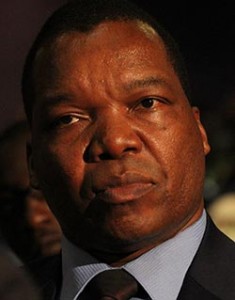A few weeks ago, I read the story about Daniel, a 36-year-old lawyer who was living a very, very frugal lifestyle. He eats only rice and beans, lives in a small apartment in New Jersey, and buys his clothes from thrift shops. His goal was to retire early and he has saved up a six-figure retirement account and $400,000 in cash.
Daniel is a believer in the FIRE philosophy which is short for Financial Independence Retire Early. This goes beyond the sensible basic financial advice of spending less than you earn. The idea is to work like crazy and save as much money as possible. FIRE also recommends diversifying income sources, generating passive income, and monetizing everything you do. Once you save enough money, you can then quit your job in your 30s or 40s. You can then spend the best years and the rest of your life living happily ever after doing whatever you want to do.
I can relate to Daniel in some ways as I prefer being a minimalist. When I am not with clients or friends, I don’t like to spend a lot of money eating out. And when I do eat out, it usually coincides with a restaurant’s special discount promotions like Taco Tuesdays. I make my own coffee, which I concede tastes slightly better than sewage. At the moment, I have no desire to live in a McMansion. And I generally do not like having a lot of stuff which ends up gathering dust or gets thrown away unused.
But after learning more about the FIRE lifestyle, I don’t think I am crazy or disciplined enough for it. There are drawbacks to the FIRE lifestyle that make me wonder whether it is worth the sacrifice. Now I understand people have different priorities in life so you can take my thoughts below with a grain of salt.
You will pay more taxes. Unfortunately, the tax laws do not give incentives to save. Before you can legitimately claim an income deduction or a tax credit, you have to spend money on certain things. So if you save, a big chunk of those savings will go to the government.
That early retirement savings cannot be touched for a long time. So you have a sizeable retirement account because you maxed out your IRA or 401K contributions for many years? That’s super. But you cannot withdraw from it until you reach the age of 59 1/2 or you will have to pay a 10 percent early withdrawal penalty and possibly income taxes on the withdrawn amount. The tax laws did not have FIRE in mind.
You will give up a lot of things. Many personal finance gurus advise delayed gratification where you hold off on enjoyment now in exchange for greater enjoyment later or avoiding unnecessary debt. But the FIRE lifestyle goes beyond simple fiscal discipline. They advocate making substantial and permanent lifestyle changes.
For example, it is not enough to buy a used car to save a few thousand dollars. Some FIRE blogs tell you to learn how to fix and maintain your car by yourself. If you buy a house or rent, you are encouraged to get roommates to save costs. A few even tell you what to eat and where to buy the ingredients in order to save on grocery costs.
I can rent rooms in my house but that means I am giving up privacy and I run the risk of having bad roommates. Today’s cars have so many electrical and computer controlled components that it is nearly impossible to fix them on your own. And some of the foods recommended I just don’t care for.
I appreciate what they are trying to do, but I personally cannot live a life that is so micromanaged and requires me to do so many things on my own.
Your family life could be a difficult one. You might embrace the hyper-frugal FIRE lifestyle but good luck finding a significant other who shares the same philosophy while you are together. Even if you do, at some point, you and your significant other might end up being frugal about different and incompatible things. Or one of you might get sick and tired of the FIRE lifestyle altogether.
And of course, it costs money to raise children properly. Especially for the unexpected expenses that comes with parenthood such as preschool, after school activities, weekend golf lessons, or in some cases, bail money.
From the stories I read, the FIRE lifestyle is best for single people since there is no one to argue with and no one to take care of.
I won’t name any names but one of the most prominent voices of the FIRE movement recently got divorced. He stated that the FIRE lifestyle was not the cause and I want to believe him. But considering that most married couples split due to finances (or lack of it), I am inclined to believe that finances played at least a part in the separation.
You might not be able to deal with financial catastrophes or opportunities. Many of the FIRE supporters assume that once people retire at some obscenely young age, they will not have major financial problems in the future. Instead, they think that everyone will live happily ever after and they will have money to pay a doctor for a checkup.
Before you quit your day job, you will need to save a substantial amount of money for a major financial catastrophe. You or a family member could suffer from a serious medical condition. Or you might be sued.
Or it may not be catastrophe but instead a potentially lucrative but expensive investment opportunity that interests you.
And if you retire at young age, it can be more problematic because there will be more time for potential catastrophes. Especially if you plan to spend your free time pursuing hobbies such as parkour, rock climbing, or whatever these people are doing.
You might be unemployable. Finally, let’s just say that at some point, the FIRE lifestyle does not work out and you want to (or need to) go back to work. Well, your absence from the job market could make that difficult. How are you going to spin your early retirement in an interview? It is very likely you won’t be welcomed back to your old senior management position. Instead, you may end up starting in the bottom in a different field.
The FIRE lifestyle sounds very appealing, especially to the significant number of people who hate their current jobs. For some people, like Daniel above, if it means living like an ascetic monk for a few years, in exchange for freedom, then that’s what he will do. But with the money he has saved so far, Daniel will not live lavishly. He will live a barely middle class lifestyle in a low cost-of-living area.
But I just don’t see it working for me. It means I will have to live a lower quality of life during my prime years while a chuck of the money I save goes towards taxes. If I put the money into a tax-advantaged retirement account, I won’t see that money for another 17 years. Not only that, I will have to save another nest egg for potential financial catastrophes or something else.
Whenever I hear testimonials about those who followed the FIRE lifestyle and achieved significant financial freedom, I think most of them are not telling us everything. Some of these people might have cashed out large stock options after leaving their firm. Or they may have a spouse who is still working. Or they have a secret golden goose that they won’t share with others. Or they may live a life that is much poorer than what people think.
It is generally a good idea to spend less than you make if you want to save money to retire. But if you want to play with FIRE, be careful because you could get burned.
Steven Chung is a tax attorney in Los Angeles, California. He helps people with basic tax planning and resolve tax disputes. He is also sympathetic to people with large student loans. He can be reached via email at sachimalbe@excite.com. Or you can connect with him on Twitter (@stevenchung) and connect with him on LinkedIn.
 Staci Zaretsky is a senior editor at Above the Law, where she’s worked since 2011. She’d love to hear from you, so please feel free to email her with any tips, questions, comments, or critiques. You can follow her on Twitter or connect with her on LinkedIn.
Staci Zaretsky is a senior editor at Above the Law, where she’s worked since 2011. She’d love to hear from you, so please feel free to email her with any tips, questions, comments, or critiques. You can follow her on Twitter or connect with her on LinkedIn.






 Jordan Rothman is a partner of
Jordan Rothman is a partner of 









